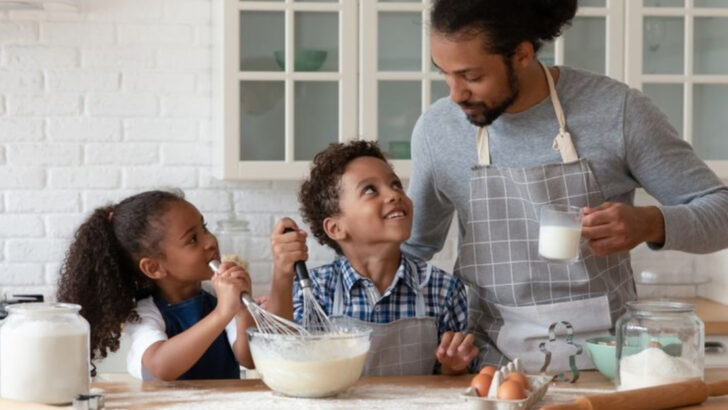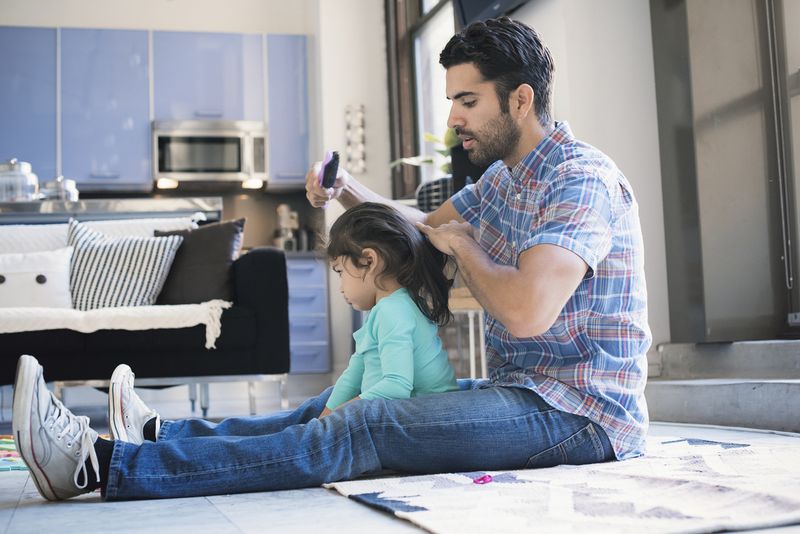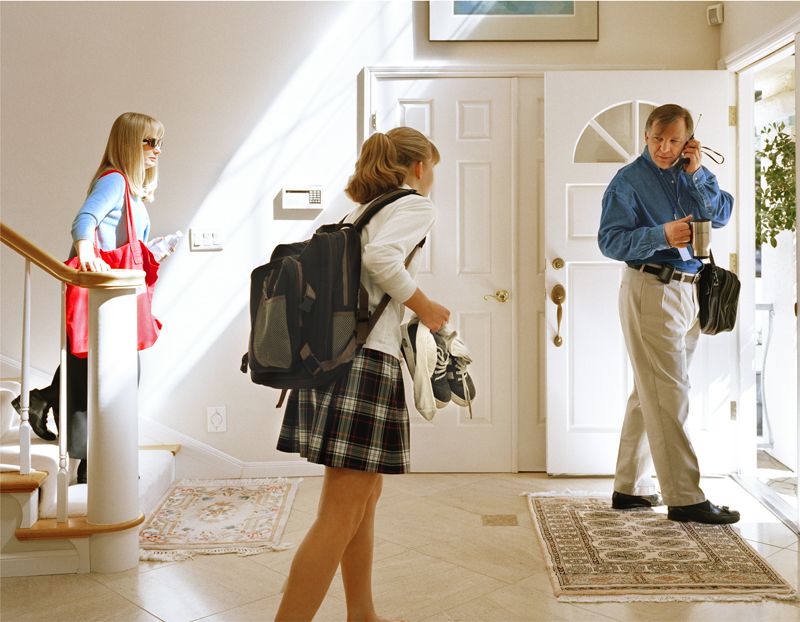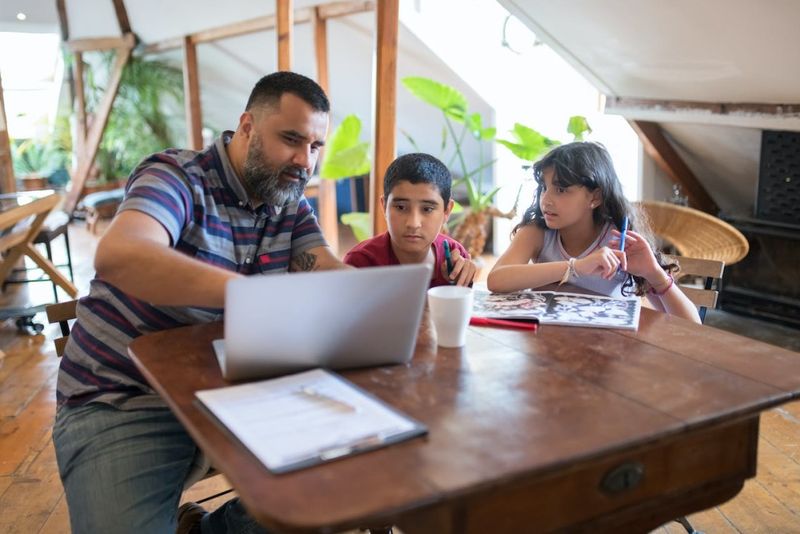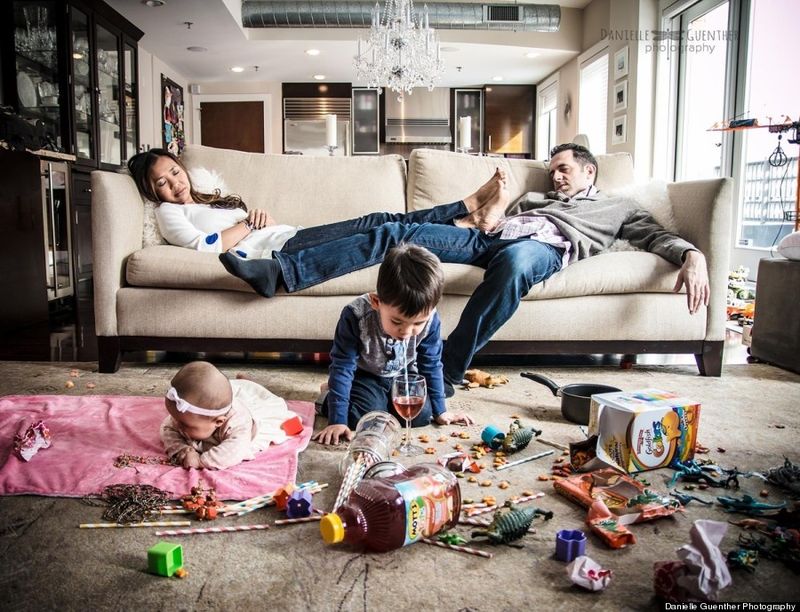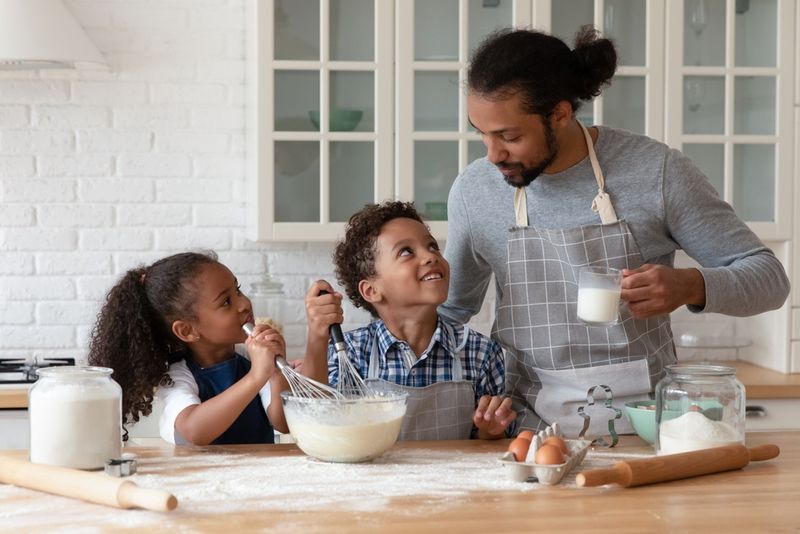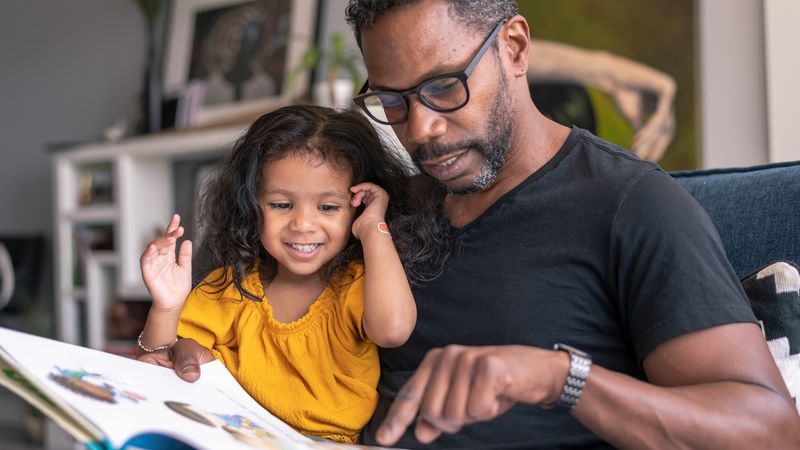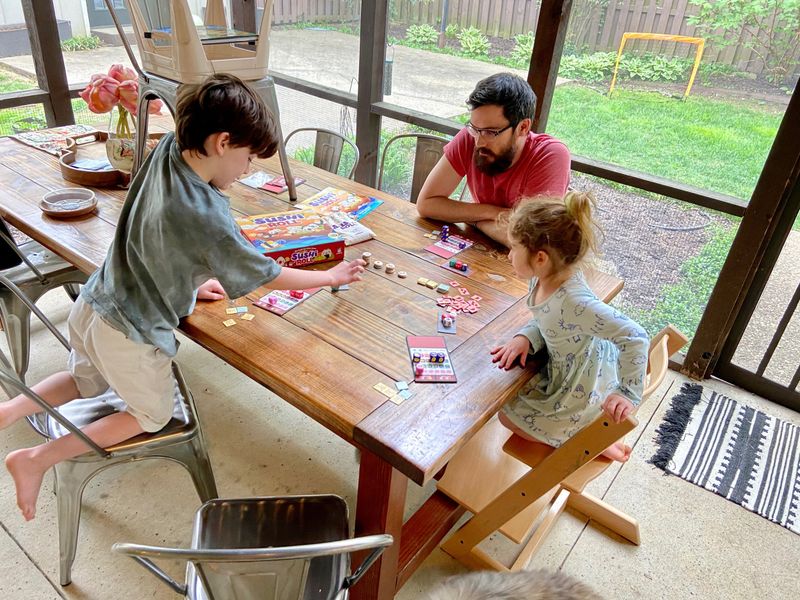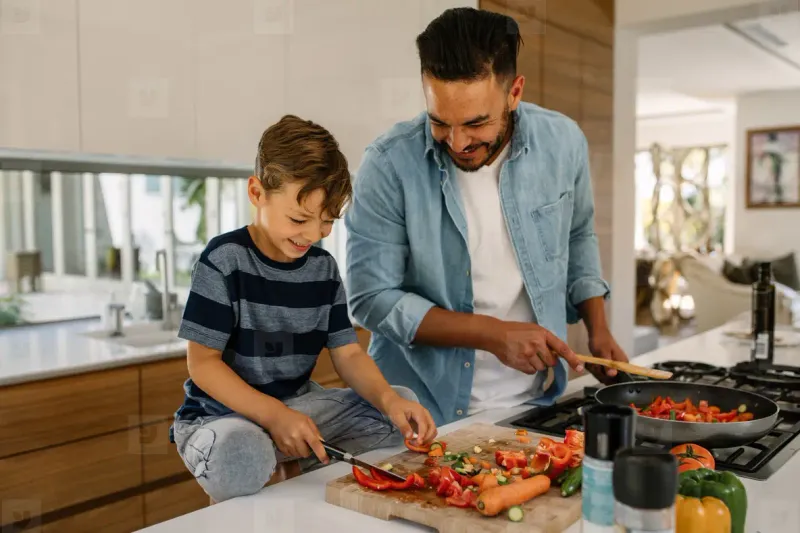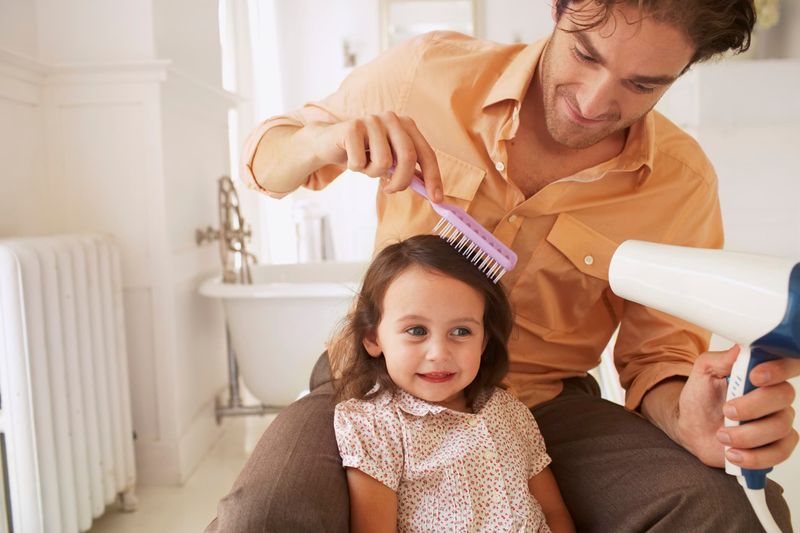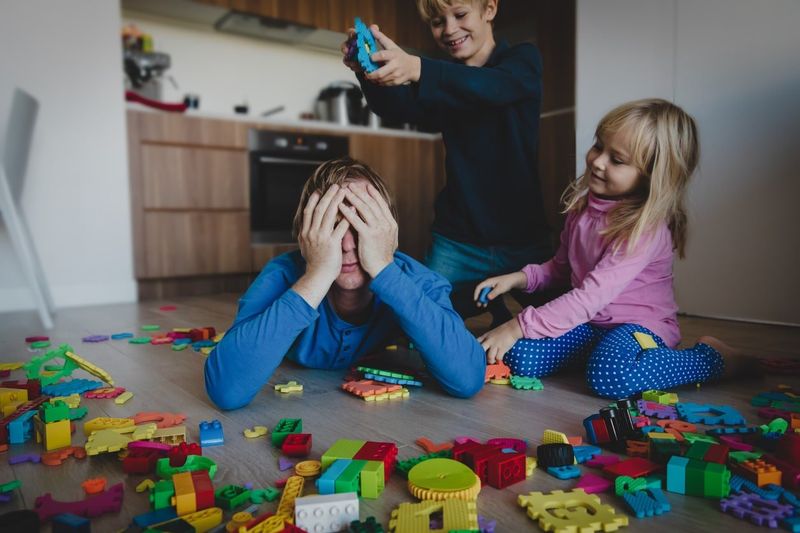We say we want equality in parenting, but let’s be real—a lot of us still act like dads deserve a gold star just for showing up. Ever notice how packing a lunch earns a dad endless praise, while a mom does it daily without a second glance?
Or how a quick run to Target with the kids turns a father into some sort of neighborhood hero? Meanwhile, moms are left managing a never-ending mental checklist, expected to juggle everything with a forced smile.
The truth? There are hidden biases about what moms and dads should do, even in families that believe in fairness. It’s time we stop normalizing “Weekend Dad” energy and call out the double standards that make parenting feel like one job gets applause while the other just gets expected.
1. Dads aren’t “helping”—they’re parenting.
Let’s be real: if I hear one more person gush, “He helps so much with the kids,” I might scream. This isn’t babysitting, it’s parenting—full stop. When dads step in, it shouldn’t be some special event; it should be the norm.
Think about it—would anyone ever say a mother is “helping” with her own children? No way. It’s wild how society still treats basic involvement like a grand gesture when it comes from fathers. Consistent, daily effort is what counts, not just swooping in for applause-worthy moments.
The true flex? Showing up for the late-night feedings, the doctor’s appointments, and yes, the daily grind that’s invisible but crucial. Parenting is a team sport, and everyone needs to own their position, not just sub in when it’s convenient. Let’s raise the bar and expect more—because our kids deserve both parents, not just part-time heroes.
2. Moms don’t get medals for showing up daily—why should dads?
Ever catch yourself rolling your eyes when a dad gets high-fives for making a sandwich? Same. Moms do this stuff all day, every day—no parade, no trophy, just another check on the never-ending list.
The bar is so low for fathers that basic acts of care are treated like a magic trick. If moms got applause for every diaper change or bedtime story, we’d never get anything done. We all want positive reinforcement, but let’s not pretend that showing up is some Olympic feat for dads.
Recognition is great, but shouldn’t it be for real effort, not just for being present? The real win is when both parents share the daily load, not when one gets a standing ovation for the bare minimum. Time to put those medals away and treat parenting like the shared journey it truly is—messy, exhausting, and entirely worth it when it’s balanced.
3. “Weekend Dad” reinforces emotional distance, not connection.
The title “Weekend Dad” sounds fun, but it comes with a price—distance. Swapping hugs and adventures just on Saturdays isn’t the same as being there for the little moments that really build trust.
Kids remember who’s there for school projects, who listens to their endless stories about Minecraft, and who knows which cereal is their favorite. Those things happen on Tuesdays, not just the weekends. If a dad is only around for the highlights, he becomes a guest star in his children’s lives, not a main character.
Let’s face it: emotional connection grows in the little, everyday rituals. It’s the after-dinner talks, the homework help, and the quiet nighttime check-ins that make a difference. Weekend-only parenting skips those chances and leaves kids craving more. Our children need more than part-time affection—they deserve the real, everyday deal.
4. Parenting isn’t a supporting role—it’s a duet.
Parenthood isn’t meant to be a one-woman show with the dad just popping in for a cameo. The magic happens when both voices are heard, both hands are holding the storybook, and both hearts are in it together.
I’ve lost count of how many times I’ve seen moms doing the heavy lifting while dads add in the “fun parts.” But a duet needs harmony, not just a backup singer. When one parent shoulders everything, burnout is inevitable—and resentment isn’t far behind.
Sharing the load isn’t just about fairness; it’s about showing your kids what partnership looks like. When both parents are in sync, kids learn that teamwork is love in action. It’s not about taking turns—it’s about making music together, every single day. The chorus? That’s for everyone.
5. We teach kids what to expect from love by what they see at home.
Actions speak louder than lectures, especially at home. When kids see only one parent consistently showing up, they start to believe that love doesn’t have to be steady or mutual.
Every skipped parent-teacher conference or missed dinner sends a silent message about what’s normal in relationships. Kids are always watching—even when they pretend not to care. They notice who makes the effort and who’s just passing through.
By modeling balanced, everyday involvement, we show them that love is about showing up—again and again. It’s not glamorous, but it’s how trust and security are built. When both parents actively participate, kids learn what real commitment looks like. Love isn’t meant to be rationed out on weekends—it’s a daily decision, and our kids need to see that in action, not just hear about it.
6. Many dads want to be more involved—but society doesn’t expect them to be.
Here’s a secret: a lot of dads crave more time with their kids, but feel stuck by what’s “normal.” Offices with side-eye glances for taking paternity leave, friends who joke about “babysitting”—it all sets the tone.
Society’s expectations still treat engaged dads as rare unicorns, not the standard. The system nudges fathers back to work, not home, and then wonders why they seem distant. Wanting to do more isn’t the problem—it’s being made to feel weird for it.
The rules are overdue for a rewrite. Let’s stop calling it “extra credit” when a dad shows up and instead expect workplaces, friends, and extended families to get on board. When we validate dads’ efforts, we make it easier for them to be present, not just on weekends, but every day. Normalize it, and watch involvement grow.
7. Moms aren’t default parents. That role was assigned, not chosen.
You ever get that call from school because you’re the “main contact”—even when you’re not the only parent? That’s not fate, that’s a default setting society keeps hitting repeat on.
Being the go-to isn’t a badge of honor; it’s a sign the system was set up lopsided. Moms become the walking encyclopedia for every allergy, doctor, and forgotten permission slip, not because we wanted to, but because that’s “how it’s done.”
Default parenting is an assignment, not destiny. Dads can know the pediatrician’s number, too. We need to reprogram the system so both parents get the text, both parents sign the forms, and both parents carry the weight. Our sanity deserves it and so do our kids.
8. Kids don’t need perfect parents—they need present ones.
Here’s some relief: perfection is overrated, and kids honestly don’t care about Pinterest-level parenting. They remember when you showed up, not when you nailed the perfect birthday cake.
It’s the midnight cookie sessions, the spilled juice, and the silly dance parties that stick in their minds. The pressure to be flawless does nothing but steal joy from the moments that matter. Let’s be the parents who are there, not the ones who are just busy looking good.
They won’t recall immaculate houses or gourmet meals, but they’ll always remember who laughed with them after a kitchen fail. Those “present” moments outweigh any highlight reel. Show up, get messy, and be remembered for it. That’s the stuff kids keep in their hearts.
9. Emotional labor is real—and dads need to carry it too.
Invisible work is everywhere: who remembers the dentist appointment, who knows which toy is secretly the favorite, who tracks down missing socks? That’s emotional labor, and for too long, moms have carried the load solo.
It’s not just about chores—it’s about the mental energy spent organizing lives. Dads are fully capable of this juggling act, but they’re not always pushed to join in. Sharing emotional labor means both parents get to breathe a little easier, and nobody burns out quietly in the background.
Kids benefit when both parents know what’s up and are tuned in. Let’s pass out those sticky notes equally and swap the martyr badge for a real partnership. Emotional labor isn’t invisible when everyone shares the load.
10. “She’s just better at it” is not an excuse—it’s a learned imbalance.
Ever heard, “She’s just better at handling the kids”? That’s not nature—it’s practice. No one is born knowing how to soothe a tantrum or braid hair with one hand; we learn by doing, messing up, and trying again.
Let dads stumble through the bedtime routine or forget the extra snack sometimes. Growth happens in the chaos, not in always getting it right. Moms didn’t become “experts” overnight—they got there by being thrown in and figuring it out.
Shrugging and saying “she’s better” just hands over power and piles on more work. Give dads room to fumble, learn, and laugh at their own mistakes. That’s how families actually grow stronger—by sharing the messy learning curve together.
11. Your kids aren’t just your legacy—they’re your right now.
So many dads get caught in the trap of thinking about “someday”—someday I’ll take them fishing, someday I’ll teach them to ride a bike. But childhood is happening now, not later.
The good stuff? It’s in the spontaneous board game nights, the random car singalongs, and the stories told at the dinner table. Being a present dad isn’t about one big moment; it’s about showing up consistently in the small ones.
Don’t wait for a milestone to make your mark. Your kids want you today, not just as a memory down the road. Show up now, even if you don’t have a grand plan. You’ll never regret being part of their everyday life. Memories are being made right here, right now.
12. Work shouldn’t be an excuse to check out.
Raise your hand if you’ve ever heard “I’ve been busy with work” as a get-out-of-parenting card. We all have deadlines, but that doesn’t mean dads get to step out of family life until the weekend.
If moms can remember teacher names and keep up with dentist visits while working full-time, dads can learn to juggle, too. Multitasking isn’t a mom-only skill; it’s a parent thing. Showing up, even on the busiest days, sets the example that family is never second place.
Kids notice which parent shows up after a long day. Prioritizing them, even in small ways, matters. So let’s put the laptop down for a minute and listen to the day’s drama—it’s the kind of multitasking that pays off for everyone involved.
13. Dads are fully capable of nurturing—but often conditioned not to.
Would you believe some people still think dads aren’t naturally nurturing? That’s conditioning, not reality. Affection isn’t something men have to “learn”—it’s a human trait.
Society has boxed up dads as the rough-and-tumble playmates and left the cuddling to moms. But honestly, some of the best hugs come from dads who let themselves be soft. Kids crave affection from both parents, and dads deserve to experience that side of parenting, too.
Let’s rewrite the script so all parents get to be loving, comforting, and completely themselves. Nurturing isn’t gendered, and kids benefit from every warm snuggle, no matter who’s giving it. The sooner we let dads be tender, the better for everyone.
14. We need to normalize “Dad Burnout” too—but not at the expense of everyone else.
Burnout isn’t a mom-only club, and it’s about time we admit dads get run-down, too. The pressure to be “on” at work, at home, and everywhere in between can take a toll. But disappearing from family life isn’t the answer.
When dads check out, the load just shifts to someone else—usually mom. That helps no one, especially not the kids. The real solution is facing burnout together, talking about it, and sharing the hard stuff.
Teamwork means picking up slack where you can and giving each other grace to rest. A tired dad isn’t a bad dad—he’s just human. Honest conversations about burnout help families stay strong, so no one has to disappear to survive.
15. Being a “fun parent” is easy. Being a real parent is the goal.
It’s tempting to be the “fun one”—the weekend trips, the ice cream runs, the goofball who never says no. But parenting isn’t about being everyone’s favorite. It’s about the hard parts, too—the late-night fevers, the tough talks, and the messy emotions.
Kids need parents who can stick around for the tears as much as the laughter. The real magic happens when you show up for the boring, unglamorous, or downright icky moments. That’s when trust is built, and kids know they’re loved for real.
Swapping a fun weekend for a week of steady, sometimes tough, presence is what counts most in the long run. The best parents aren’t the most exciting—they’re the most reliable. That’s what makes memories that last.

